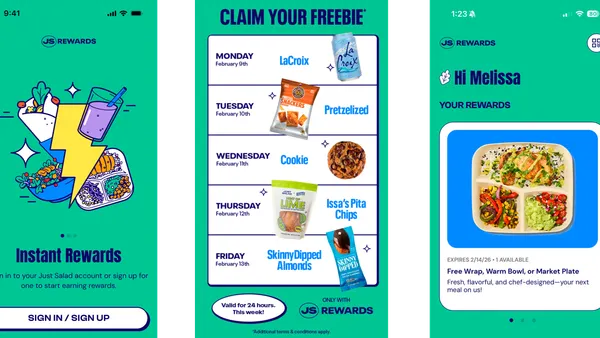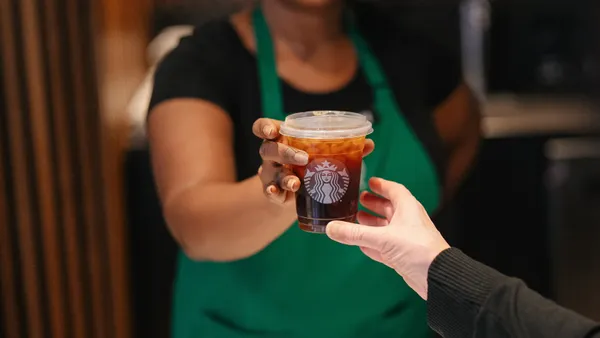Digital ecosystems run the show in today’s foodservice industry. But the more connected the system, the higher the stakes. When tech fails, service stops, costs spike, and customer trust evaporates—often in minutes.
Service models are built around tech-powered convenience. Today’s guests expect:
- Mobile ordering, apps, and self-service kiosks
- AI-assisted drive-thru and curbside logistics
- Loyalty systems that track points, discounts, and personalized offers
- KDS systems that streamline kitchen prep and reduce ticket errors
- POS systems that sync front-of-house and back-of-house and manage real-time sales data
- Third-party delivery integrations that keep pace with digital demand
Foodservice is now a digital-first business. But as the tech stack grows, so do the points of failure.
Behind the scenes: The ripple effect of downtime
Whether it’s a Friday dinner rush at a full-service restaurant, a catering operation staging orders, or a convenience store fueling grab-and-go sales, tech failures cause chaos:
- Orders pile up or disappear, forcing manual reconciliation
- Staff scramble to process payments manually, often without complete data
- Managers triage between guest recovery, order fulfillment, and IT support calls
- Food waste increases as inventory control systems lag behind real-time needs
- Labor costs spike as teams work overtime to resolve disruptions
- Customers document the failure online—damaging brand reputation instantly
Foodservice brands compete on consistency and a single tech outage can do more harm than a bad meal.
Why foodservice tech resilience requires more than backup servers
Most operators experience a few major tech disruptions each year—but the cost of even one can be catastrophic.
“When systems go down, it’s not just about revenue loss—it’s about a break in the guest promise,” says Jay Gyuricza, VP of Customer Experience and Business Development, Stable Kernel. “From loyalty redemptions to kitchen throughput to health compliance, everything hinges on operational tech running with near-perfect uptime.”
A KDS failure or POS outage isn’t just an IT problem—it’s an operational, financial, and reputational crisis.
Stable Kernel’s approach: Resilience by design, not reaction
Unlike vendors who bolt on monitoring tools or offer post-crash recovery, Stable Kernel is a trusted advisor that helps foodservice brands build resilience into the core of their digital operations.
Here’s how:
1. Resilient architecture, not just apps
SK designs systems with redundancy, failover, and graceful degradation built in. That means when one part of the system fails, the whole operation doesn’t grind to a halt.
- Uptime capabilities for POS when internet is down
- Hybrid workflows that toggle between manual and automated processes
- Dual-path networking and data sync to prevent order loss
“Tech resilience isn’t an IT project—it’s an operational strategy. We help you integrate it into the way your teams work every day by building platforms that keep serving guests even when parts of the tech stack falter,” explains Gyuricza.
2. The plan → Build → Measure loop for continuous improvement
Stable Kernel applies its Plan → Build → Measure loop to help operators avoid the siloed approaches that lead to system fragility.
- Map end-to-end workflows, connecting tech, people, and process
- Design for cross-functional collaboration between product, engineering, and operations
- Embed real-time feedback loops to evolve systems continuously—not just after outages
3. AI-powered observability & predictive maintenance
Stable Kernel integrates real-time monitoring and AI-driven anomaly detection into client platforms, giving operators early warning before outages escalate.
- Track queue depth, lagging order times, and POS sync issues
- Alert managers before kitchen bottlenecks become service failures
- Use predictive analytics to identify and fix small problems before they become big ones
4. End-to-end partnership, no handoff gaps
Unlike fragmented vendor stacks, SK empowers the entire software development lifecycle—from strategy to design, development, deployment, and ongoing support.
- No integration gaps between guest-facing apps and back-of-house systems
- No finger-pointing between product and dev teams
- One accountable partner focused on the full guest experience
Foodservice brands that thrive are built for disruption
Tech failures are inevitable but operational collapse isn’t. The foodservice brands that succeed are the ones ready for disruption.
Stable Kernel helps operators:
- Design for uptime and failure simultaneously
- Integrate tech resilience into daily workflows—not just IT protocols
- Connect real-time data to frontline action, not just executive dashboards
- Empower staff with hybrid service models that protect the guest experience
- Embed digital reliability into KPIs—from net promoter score (NPS) to order accuracy
Tech isn’t a cost center. It’s the brand.
The modern foodservice brand lives and dies by its technology. Reliability isn’t optional—it’s a competitive advantage.
With Stable Kernel, operators don’t just get better apps—they get a more resilient business.
Because when the system stays up, the service stays strong.
Ready to turn tech risk into competitive advantage?
Let’s build foodservice systems that don’t just work—they work under pressure. Let’s talk.











